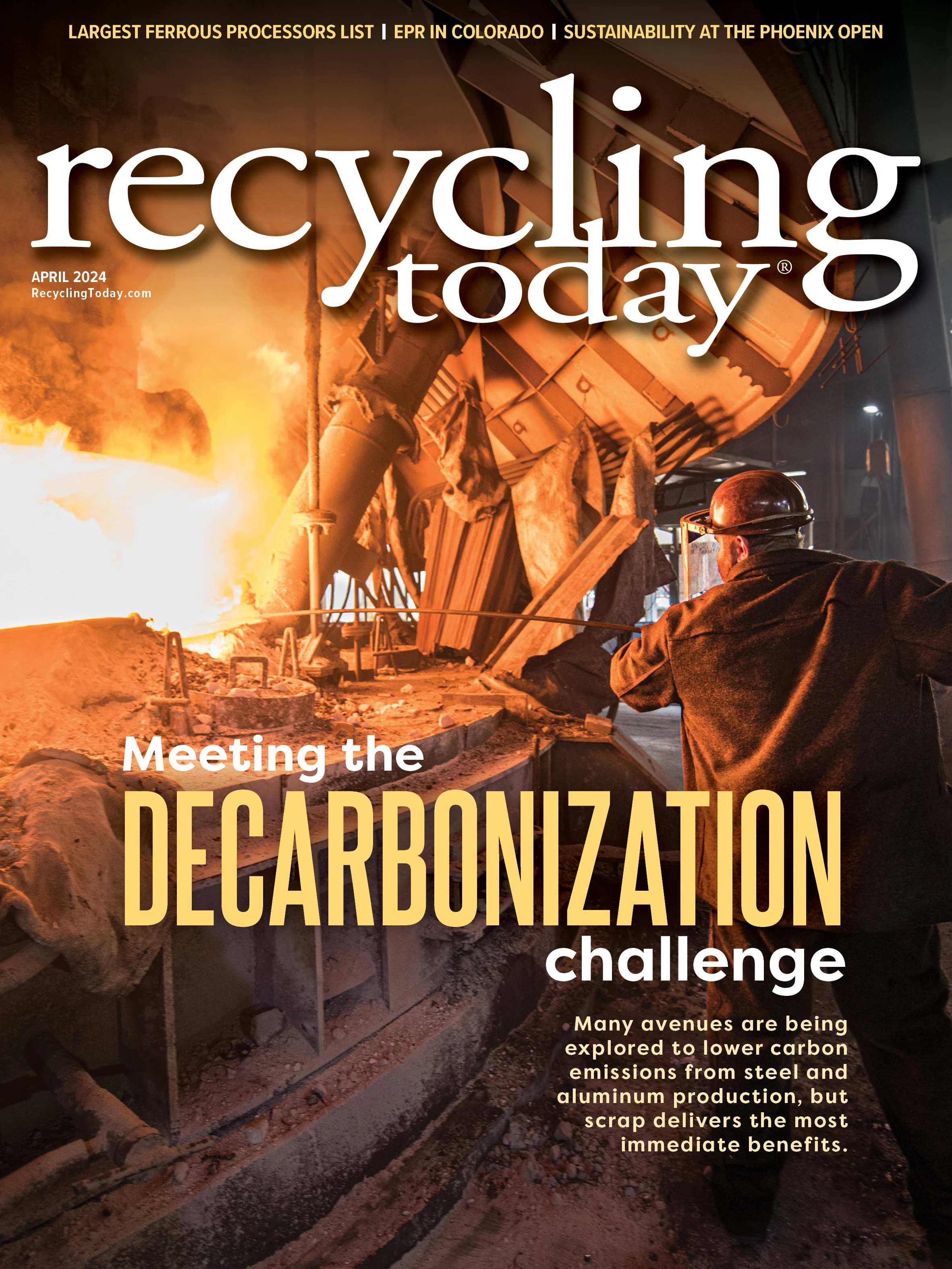A recent report from ICIS, a Houston-based commodities consulting company, claims demand for plastic scrap in the United States outweighed supply in 2023, resulting in the country becoming a net importer of plastic scrap for the first time.
The report cites recently released trade data from the U.S. Census Bureau showing a 5 percent year-on-year increase in imports of plastic scrap—noted by the harmonized system (HS) code 3915— to about 446,778 tons in 2023. Plastic scrap imports include items such as bottles, purge, leftover pairings and flake.
Polyethylene terephthalate (PET) scrap imports, in particular, rose 33 percent last year to a record 204,278 tons. ICIS says some U.S. recyclers now purchase cheap spot or imported PET flake to process into food-grade pellets, potentially redirecting their internally produced flake from high-cost domestic bale feedstock to sell directly to customers. In the long term, the report says the U.S. will have to seek imports of bales or flakes as feedstock because of costs and to feed growing plastic recycling capacities amid stagnant collection rates.
“There needs to be a push to invest and fund reclaimers and processors of plastic scrap to compete with imported recycled PET materials and products.” – Ivan Liang, vice president of supply chain and commodities, rPlanet Earth
Ivan Liang, vice president of supply chain and commodities for California-based reclaimer and packaging producer rPlanet Earth, says although there is positive movement to increase domestic collection of PET of bottles and trays, brands and consumers must want to use domestic recycled materials versus using imports.
He says recycling education is important to increase domestic scrap supply as is legislation that supports national bottle and tray bills that could increase postconsumer PET supply.
“There needs to be a push to invest and fund the reclaimers and processors of plastic scrap to compete with imported recycled PET materials and products,” he says.

Alasdair Carmichael, program director for the Wisconsin-based National Association for PET Container Resources (NAPCOR), says the association’s members are reporting low-priced imports of PET flakes and pellets, including increased import competition on the East Coast, within the last year. He notes, however, that trade data can be tough to monitor since the U.S. does not have a distinct harmonized tariff system (HTS) code for recycled PET (rPET), resulting in rPET entering the U.S. under different codes, making it difficult to quantify.
ICIS reports Canada and Mexico accounted for 34 percent of the U.S.’ imported PET scrap last year, tied with 34 percent imported from Asian countries. Notably, Thailand was the second-largest exporter of PET to the U.S. at 23,346 tons, trailing Canada’s 59,247 tons.
“There has been a significant increase in capacity for both rPET and virgin PET resin in Asia, and their interest in exporting to the U.S. has grown dramatically,” Carmichael says, adding NAPCOR would like to see a specific HTS code for rPET imports, with clarity about import duties on shipments.

Explore the April 2024 Issue
Check out more from this issue and find your next story to read.
Latest from Recycling Today
- BMW Group, Encory launch 'direct recycling’ of batteries
- Loom Carbon, RTI International partner to scale textile recycling technology
- Goodwill Industries of West Michigan, American Glass Mosaics partner to divert glass from landfill
- CARI forms federal advocacy partnership
- Monthly packaging papers shipments down in November
- STEEL Act aims to enhance trade enforcement to prevent dumping of steel in the US
- San Francisco schools introduce compostable lunch trays
- Aduro graduates from Shell GameChanger program





